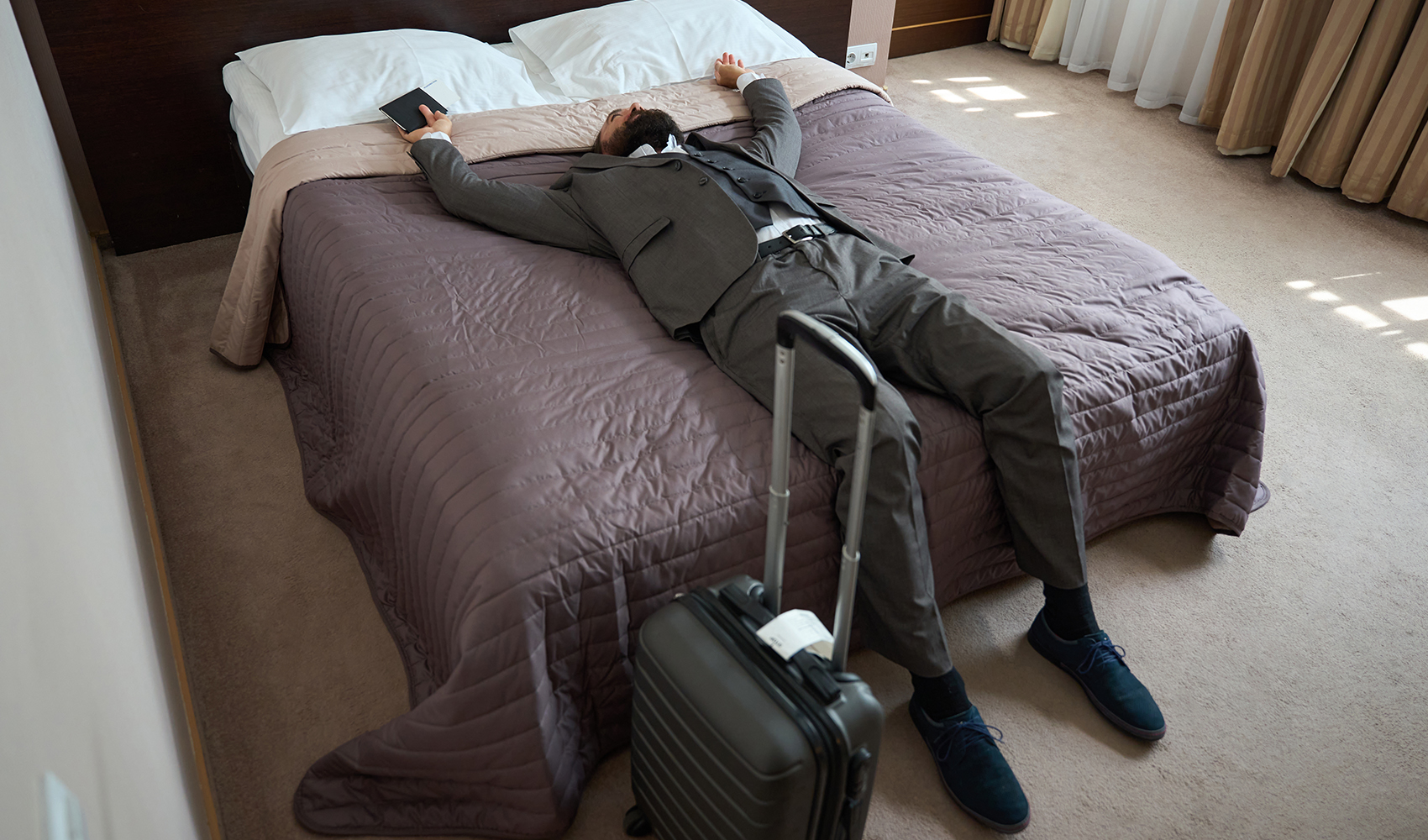
Travel has become an integral part of many people’s lives today and they visit places frequently for personal and professional commitments. Being busy is an understatement for people living out of a suitcase. These people are the ones who experience tremendous jet lag. Caused by rapid travel across multiple time zones, jet lag disrupts the body’s internal clock, leading to sleep disturbances, fatigue, and leads to difficulty concentrating. To minimize its impact, one should adjust their schedule before departure, stay hydrated, and get ample rest. But before jumping to the various causes and solutions of jet lag, you must understand that patience is the key here; you should allow time for your body to gradually acclimate to the new time zone.
Causes of Jet Lag
Jet lag is a very common and temporary phenomenon, that is caused due to a person’s internal body clock getting disrupted due to travelling across multiple time zones. The body’s natural rhythm is synchronized with the day-night cycle of its home environment, and when this cycle is abruptly altered, various physiological processes are affected, leading to the symptoms of jet lag. Here are some of the primary causes:
- Time Zone Discrepancies: This is the main trigger of jet lag. Misalignment between the time at your departure and arrival locations. Traveling eastward or westward across time zones can confuse the body’s internal clock, which regulates functions such as sleep-wake cycles, hunger, and body temperature. This is one of the main causes of people experiencing jet lag.
- Air Travel Stress: The stress associated with air travel, including factors like cabin pressure, dehydration, and confined spaces, can contribute to the overall disruption of the body’s physiological functions. These stressors may exacerbate the symptoms of jet lag.
- Disruption of Meal Patterns: The timing of meals is an important cue for the body’s internal clock. Jet lag can occur when meals are consumed at times that are inconsistent with the body’s usual eating patterns, leading to digestive discomfort and further disruption of the circadian rhythm.
- Number of Time Zones Crossed: The more time zones crossed, the more disruptions to circadian rhythms. Long-haul flights that span numerous time zones intensify the challenges faced by the body in adjusting to the new schedule.
- Light Exposure: Travelers experiencing jet lag may benefit from exposure to natural sunlight at specific times to aid in adjusting to the new time zone. Prolonged exposure to artificial light, especially during inappropriate times, can hinder the body’s ability to adapt to a new time zone.
- Cabin Pressure & Oxygen Levels: Reduced cabin pressure and oxygen levels in airplanes can lead to physiological stress, contributing to fatigue and disrupting sleep patterns. Changes in atmospheric conditions affect blood circulation, potentially impacting sleep quality and exacerbating jet lag symptoms.
Overcoming jet lag requires a combination of strategic planning, lifestyle adjustments, and mindfulness about your body’s needs. By incorporating these tips into your travel routine, you can minimize the impact of jet lag and optimize your ability to adapt to new time zones. Remember that everyone’s body reacts differently, so it’s essential to experiment with these tips to find the combination that works best for you.
- Preparation Before Departure: Before travelling, the sleep cycle should be slowly shifted along with the meal times to align with the time zones of your travel city. This will help the body to be slowly prepared for the upcoming change and not experience a sudden adjustment.
- Hydrotherapy & Relaxation Techniques:
- Hot and Cold Showers: The use of hydrotherapy techniques such as alternating hot and cold showers will invigorate your body and promote wakefulness.
- Deep Breathing and Meditation: Practice deep breathing or meditation to reduce stress and promote relaxation, aiding in the adjustment to a new sleep schedule.
- Strategic Use of Sleep Aids: Try to use aids to help you regulate your sleep-wake cycles. Consult with a healthcare professional before using any supplements.
- Mindful Meal Time:
- Adapt Meal Times: Adjust your meal schedule to match the local time of your destination. This helps synchronize your body’s circadian rhythms with the new time zone.
- Light Meals: Choose light, easily digestible meals during the flight and upon arrival to support your body’s adjustment.
- Light Exposure:
- Natural Light: Upon arrival, expose yourself to natural sunlight during daylight hours. This helps reset your internal clock and signals to your body that it’s time to be awake.
- Use Artificial Light Wisely: If natural light is limited, consider using artificial light, especially in the morning, to simulate the local time.
- Sleep Management:
- Adjust Sleep Schedule: Try to sleep on the plane according to the local time of your destination. Use an eye mask and earplugs to create a sleep-conducive environment.
- Napping Strategically: Plan short naps to combat fatigue but avoid extended naps that can interfere with your ability to adjust to the new time zone.
- Staying Hydrated During The Flight: You should drink plenty of water to combat dehydration caused due to low humidity in airplane cabins. Also, reduce consumption of caffeine and alcohol, as they also contribute to sleep deprivation and dehydration.
- Stay Active:
- Exercise During Layovers: Engage in light exercise during layovers to promote blood circulation and reduce feelings of lethargy.
- Outdoor Activities: Plan outdoor activities upon arrival to further enhance exposure to natural light and boost alertness.
Following these tips stated above, one can work on their jet lag and overall wellness in a different country.
Frequently Asked Questions
Q1. Does exposure to natural light help with jet lag?
Ans: Yes, exposure to natural light is beneficial for combating jet lag. Natural light helps regulate the body’s internal clock, or circadian rhythm, which can be disrupted when crossing multiple time zones. Spending time outdoors in sunlight at your destination, especially during the local daylight hours, helps synchronize your body with the new time zone, assisting in the adjustment process and reducing the severity and duration of jet lag symptoms.
Q2. How can I prevent jet lag?
Ans: To prevent jet lag, consider adjusting your sleep schedule a few days before travel to align with the destination time zone. Stay well-hydrated during the flight, avoid excessive alcohol and caffeine consumption, and take short naps if necessary. Upon arrival, expose yourself to natural light, eat meals at local times, and engage in light physical activity to help reset your circadian rhythm and minimize the impact of jet lag.

